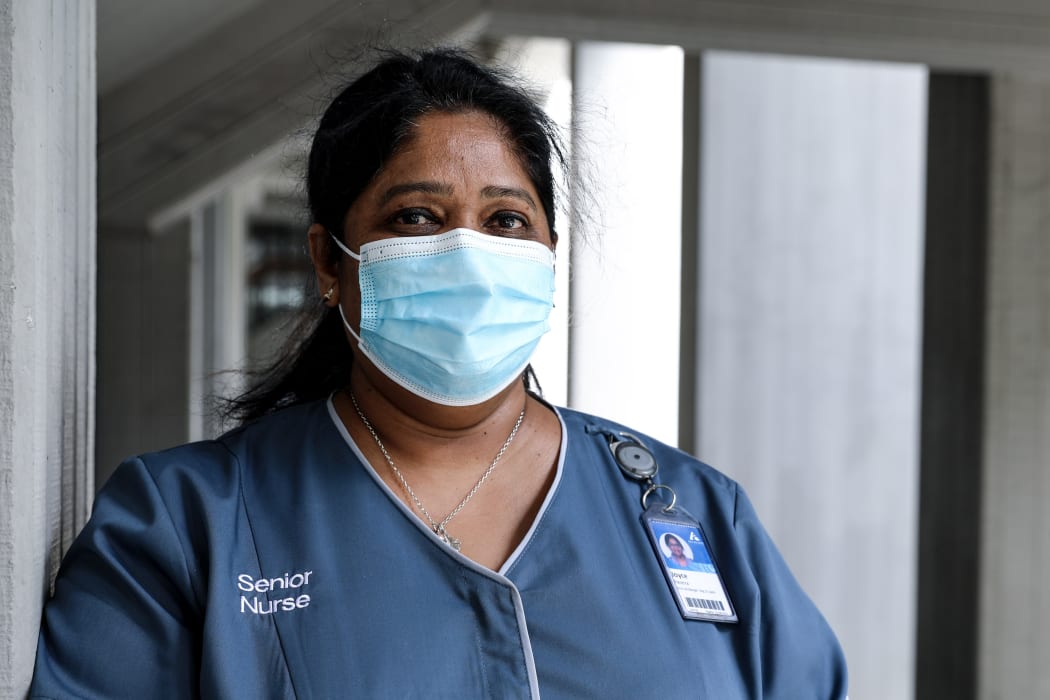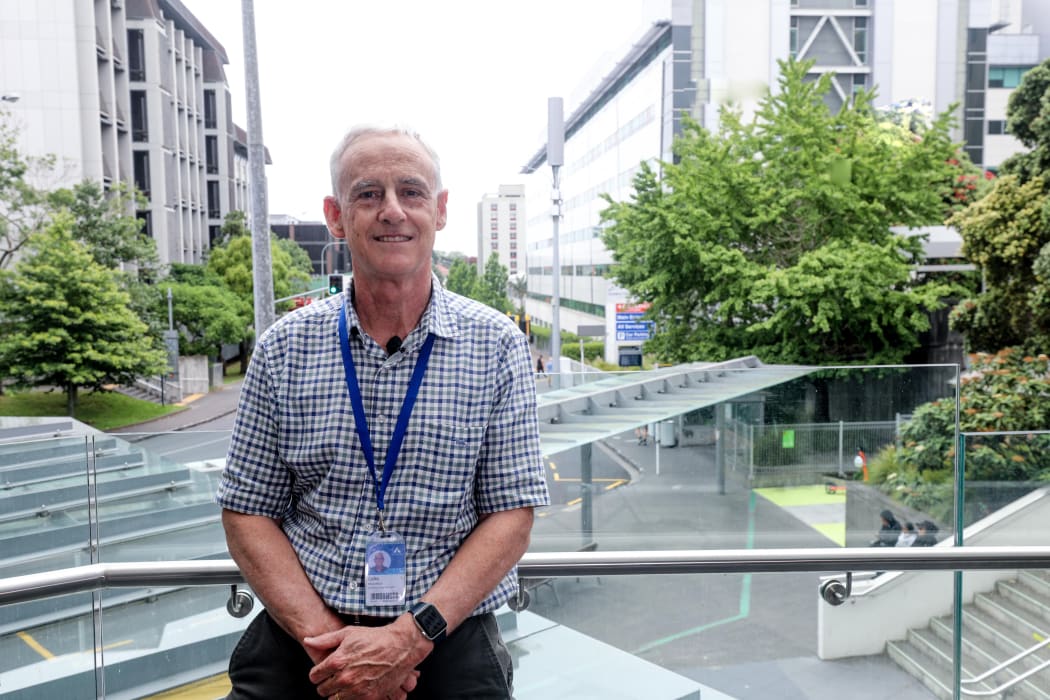Vaccination is your biggest defence this summer - that is the message from two health professionals working in Auckland city hospital's Intensive Care Unit and Covid-19 ward.
It comes as Auckland prepares to open its borders next Wednesday and uncertainty grows around the impact of the new Omicron variant.
Reporter Louise Ternouth and camera operator Marika Khabazi go inside Covid-19's 'red zone'.
Inside Auckland City Hospital's Covid-19 ward, you are entering the "red zone", signs on the wall read.
Stacks of personal protective equipment (PPE) line shelves and oxygen masks are at each bedside.
Negative pressure devices on the walls keep contaminated air from escaping out of here.
Joyce Pereira, who is on the Covid-19 frontline as a nurse unit manager, said working with patients infected with this virus was a whole new ball game.
"It's working in a negative pressure room, we have surveillance testing daily, and a lot of debrief happens daily."
About 600 patients have been through these hospital doors with Covid-19.
Pereira makes it her mission to get to know all the patients and says a prayer each day for them.
"So we do it regardless so there is a duty of care when we're caring for patients, there is a special bond exchanged on a daily basis, so with Covid patients it's just another layer of them being isolated from their loved ones, so we are going in there to spend some direct time to care."
There are some patients who do not make it.
"It's always hard to lose a patient in the ward. Always, always difficult," Pereira said.
"But it's also a privilege to be with them in the last days and also be with the family during this very challenging times. Yeah, just kudos to everybody who works with Covid."

Auckland City Hospital nurse unit manager Joyce Pereira. Photo: RNZ / Marika Khabazi
It takes its toll, but she has found ways to cope with her team.
"A problem is a chance for us just to improve I follow that to a tee. I think every time I have such emotions to go through, I just look at what could have I done better so that the patient care is delivered better or the staff morale is kept uplifted."
She said the severity of sickness depended on whether patients were vaccinated or not.
"People who are vaccinated recover quickly, they can safely discharge at home. It is good to see the numbers increasing, we need to keep going, we need to vaccinate."
If things get worse, they go to the Intensive Care Unit (ICU), where doctor Colin McArthur works.
He told Checkpoint across the Auckland region, no patient admitted to the ICU had been fully vaccinated.
Patients here are struggling to breathe, relying on pressurised masks or in the worst case ventilators.
"The lungs don't transfer oxygen as well when that gets affected initially because of the virus and then eventually as the disease progresses, the immune system causes a reaction and that can also damage the lungs," Dr McArthur said.
"So the main thing treatment is focused on is allowing the lungs to have enough oxygen to get into the body."

Auckland City Hospital doctor Colin McArthur works in the Intensive Care Unit. Photo: RNZ / Marika Khabazi
A gown, gloves, goggles, maybe a face visor, and a special mask - that is what Dr McArthur has to wear every day in ICU. The last two years have been full on for him.
"I think roller coaster is a good example, because we've had various sort of waves of activity," he said.
"I guess right from the very beginning when we went straight into into lockdown, which is a very new thing and that was a very intense time. Not knowing what was going to happen then, it was very new, so there's been a kind of anxiety associated with that.
"Then we've had quite an extended period with low levels of community cases where the anxiety levels are lower obviously, and now with the Delta outbreak here in Auckland are now starting to be apparent in other parts of the country."
He has managed his stress by turning to research - looking at the use of steroids to treat Covid-19 since June last year.
"Both agents are effective in reducing the need for progression to those higher levels of treatment we were talking about, the higher levels of oxygenation support, including with a ventilator, reducing the risk of that occurring and reducing deaths."
He felt confident Auckland's vaccination rates would prevent too many people coming into ICU this summer.
But as for Omicron he said that was a big unknown.
"It's really too early to say what the impact will be, and fortunately we've got the ability with our border settings to see what happens in other countries and to be able to adjust things to match what change there may be compared to Delta," Dr McArthur said.
"So we're kind of doing things appropriately for Delta at the moment, we just don't know whether Omicron is going to be the same or differ."


